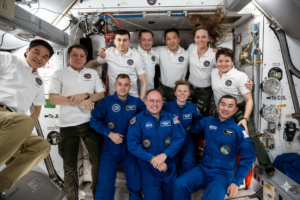The resurgence of discussions on nuclear weapons testing has become a global concern, with scientists, policymakers, and international leaders weighing in on its potential implications. The call to resume nuclear tests is sparking debates over security, technological advancements, and global stability. With tensions rising among nuclear-armed nations, understanding the key aspects of this debate is crucial.
Table of Contents
Why Are Nuclear Tests Being Discussed Again?
Recent developments indicate that certain nuclear-armed nations are considering reviving nuclear weapons testing, breaking a long-standing global norm. Some key reasons include:
- Technological Modernization: Countries are developing more advanced nuclear warheads and need tests to validate their effectiveness.
- Geopolitical Tensions: Increased rivalries between major powers, such as the USA, Russia, and China, have heightened the urgency of nuclear preparedness.
- Strategic Deterrence: Nations may want to reinforce their nuclear credibility in response to military threats.
- Testing Site Readiness: Russia has already prepared its nuclear testing facility at Novaya Zemlya, signaling a potential shift.
Key Reasons for Renewed Nuclear Testing Discussions
| Factor | Explanation |
|---|---|
| Modernization of Nuclear Warheads | New warheads need testing to confirm reliability and safety. |
| Geopolitical Conflicts | Rising tensions between world powers lead to nuclear posturing. |
| National Security Strategy | Countries want to reinforce their deterrence capabilities. |
| Readiness of Test Sites | Some nations have prepared facilities for potential tests. |
How Would Nuclear Testing Affect the USA?
The USA is at the center of this debate due to its leading role in global security. The impact of resuming nuclear testing includes:
- Increased Military Spending: Expanding nuclear capabilities will require significant funding.
- Environmental Concerns: Testing could lead to radiation exposure, affecting local populations and ecosystems.
- Diplomatic Consequences: A U.S. decision to test nuclear weapons could strain relationships with allies and violate international agreements like the Comprehensive Nuclear-Test-Ban Treaty (CTBT).
- Public and Scientific Opposition: Many experts and citizens strongly oppose testing due to ethical and safety concerns.
Scientific Community’s Divided Opinion
Scientists and policymakers are split into two camps regarding nuclear testing:
- Supporters of Testing argue that:
- Tests are necessary to confirm the reliability of new nuclear weapons.
- Advanced simulations, while useful, cannot replace real-world data.
- Rivals like Russia and China might be secretly testing weapons, so the USA must keep up.
- Opponents of Testing highlight that:
- Testing could spark a new nuclear arms race.
- Modern technology, such as supercomputers, can simulate nuclear explosions without actual tests.
- Environmental damage and radiation risks outweigh any benefits.
Global Consequences of Resuming Nuclear Testing
If nuclear testing resumes, the world could face major repercussions, including:
- Arms Race Acceleration: More countries may restart testing, increasing global instability.
- Breakdown of International Treaties: The CTBT and other agreements may collapse, leading to more nuclear proliferation.
- Public Protests and Political Backlash: Large-scale opposition from citizens and advocacy groups.
- Environmental and Health Hazards: Increased risk of radiation exposure and nuclear fallout.
Conclusion
The debate over nuclear weapons testing is not just about military strategy—it’s about global security, ethics, and scientific advancements. While some argue that testing is necessary for national defense, others believe it poses too many risks. The USA must carefully assess its position, balancing national security needs with international commitments and public concerns.
In the coming years, the decision to resume nuclear testing—or not—will shape global stability and the future of arms control.
[USnewsSphere.com / ny]





